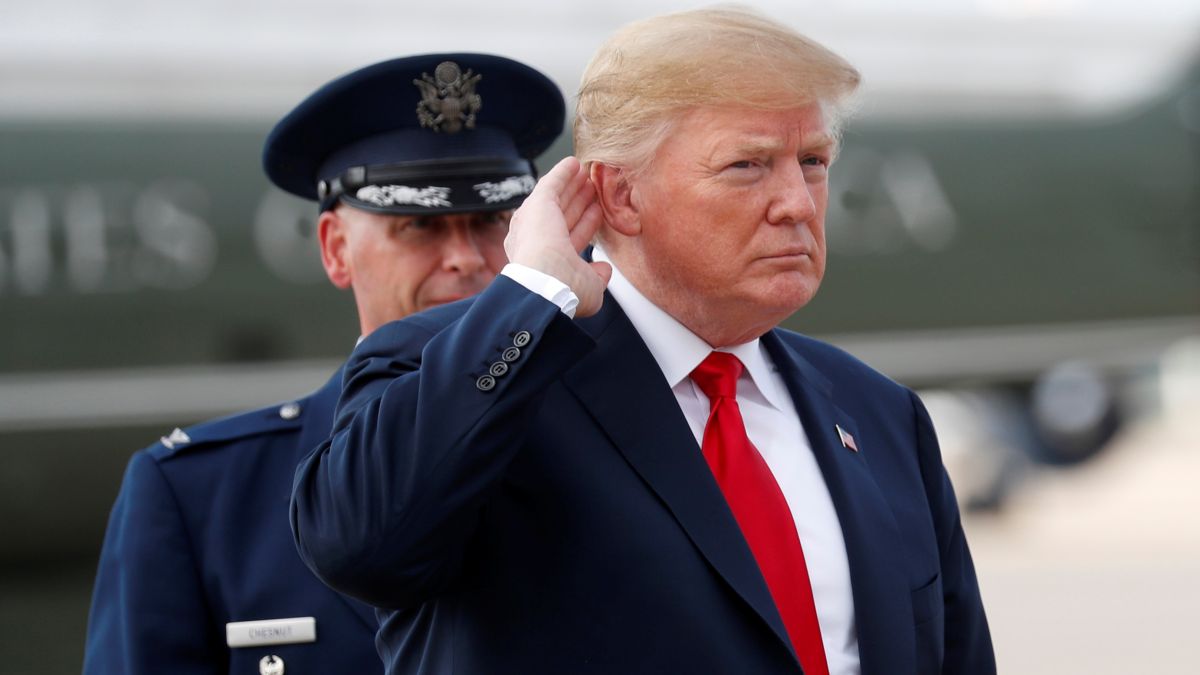Was US President Donald Trump’s 90-day pause on tariffs for most countries forced by rising bond yields?
Trump on Wednesday abruptly reversed course on his reciprocal tariffs – though he did not include China in the move – for most countries.
Trump’s announcement caused the US stock market to rally sharply with the S&P 500 and Nasdaq both posting their biggest 1-day gains since 2008 and 2001 respectively.
But what happened? Did rising bond yields indeed cause Trump to announce the delay?
A brief look at bonds
First, let’s briefly examine bonds.
As per Investopedia, US bonds are debt securities issued by the US government.
The US issues bonds to raise revenue.
Also known as T-bills, US bonds have a maturity of 20 to 30 years.
T-bills pay their holders investments semi-annually until maturity.
On maturity, the owners receive the full face value of the bond.
US bonds are considered among the world’s safest investments and are a central pillar of the global financial system.
This is because they are backed by the US government.
Hence, they are always in demand.
The treasury market is thought to be valued at $29 trillion.
What happened on Wednesday?
However, on Wednesday, investors simply could not wait to unload the treasury bonds in search for cash.
Some people think that investors including large hedge funds were selling bonds in a frenzy in order to cover margin calls due to heavy losses in their portfolios.
Fox News on Thursday reported that a Japanese hedge fund unloaded a massive amount of treasury bonds.
Some said the “dash for cash” reminded them of the Covid-19 era in 2020 when a massive plunge in the treasury market caused the Federal Reserve to step in and buy bonds worth $1.6 trillion.
The US bonds came under heavy selling pressure on Wednesday – which sent 10-year borrowing costs surging.
At one-point, 10-year bond yields – which move inversely to their price – were set for their biggest weekly jump in more than a decade.
The bond price hit a peak of 4.51 per cent on Wednesday.
They were trading at 4.27 per cent on Thursday.
Interestingly, China is the second-biggest foreign holder of US government debt after Japan.
Beijing has around $761 billion worth of bonds.
Why Trump announced the delay
Trump on Wednesday took to social media to encourage his followers and Wall Street.
It is a “a great time to buy,” the president insisted.
“Be cool Everything is going to work out well. The USA will be bigger and better than ever before!” Trump wrote on his Truth Social media site.
However, it seems that behind the scenes, Trump was spooked by a combination of things.
Firstly, the market reaction to the ‘reciprocal tariffs ’ over the past few days.
As per Bloomberg, Trump assembled his top economic advisers to the White House.
This included Bessent and US Commerce Secretary Howard Lutnick.
“Over the last few days, it looked pretty glum,” Trump was quoted as saying by Bloomberg.
“Well, I thought that people were jumping a little bit out of line. They were getting yippy, you know, they were getting a little bit yippy a little bit afraid,” the US president told reporters.
“You have to have flexibility,” Trump was quoted as saying by CNN. “I think in financial markets, because they change, look how much you change today.”
Trump previously said he was unconcerned about fluctuations in the market, saying ‘sometimes you need to take your medicine.’
Second, concern about a possible recession from his billionaire backers.
Bill Ackman and JP Morgan CEO Jamie Dimon, two Trump backers, took to social media to express concern on social media over the Trump tariffs .
Ackman said the tariffs would result in a “self-induced, economic nuclear winter,” while Dimon said the recession was now “a likely outcome.”
“Markets aren’t always right, but sometimes they are right,” Dimon, speaking on the president’s favourite news channel Fox News, said.
Republican officials like treasury secretary Scott Bessent and Vice President JD Vance also voiced their concerns to the president, as per The New York Times.
As per Bloomberg, Republican Senator Lindsey Graham called the president on Tuesday.
“I said, ‘Listen, you’re trying to bring about a level playing field you’ve been talking about for four years, now there’s a way to do it. People are responding to what you’ve done. Sit down with them and see what kind of deals you can get,‘” Graham was quoted as saying.
But it seems it was the adverse reaction of the treasury bonds market – which can be a sign of horrific things to come – that finally caused Trump to blink.
Trump admitted as much.
“I was watching the bond market,” Trump was quoted as saying by CNN. “The bond market is very tricky. I was watching it. But if you look at it now, it’s beautiful.”
Experts think that the ‘bond vigilantes’ forced Trump’s hand.
The term, coined in the 1980s, refers to debt investors who seek to impose fiscal discipline on governments they perceive as profligate by raising their borrowing costs.
“The Bond Vigilantes have struck again,” Yardeni Research said in a note, adding that they were the only players with a 100 per cent success rate in US markets. “As far as we can tell, at least with respect to US financial markets, they are the only 1.000 hitters in history.”
They also think lasting damage may have been done to the United States and its reputation.
“The damage has been done … both in terms of relative economic growth outcomes and foreign investor willingness to fund the US external deficit,” said Deutsche Bank analysts in a note.
“The age of US exceptionalism (at least financially) has come to an end," Westpac analysts said in a note. “The ultimate risk-free curve, of US Treasuries, the ‘golden collateral’, the actual instrument any investor from Tennessee to Tokyo can buy, is being challenged.”
With inputs from agencies
)